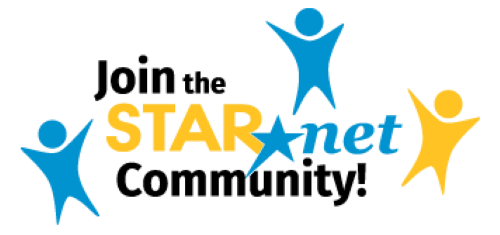STAR Net resources
Free STEAM learning activities for libraries
Libraries all over sparked curiosity about space, astronomy, and all things STEM-related during the recent solar eclipse. If you’re looking for ideas to help your community members continue the learning, we’ve got you covered. Explore new ways to bring science, technology, and fun into your programs and services with the STAR Library Network (STAR Net), a hands-on learning network for libraries and their communities across the country. Whether you are new to STEM or are building on past experiences, STAR Net offers resources and collaborations to take lifelong STEM learning to new levels in your library:
- Blog posts and resource roundups, including a citizen science link bank, bilingual (English/Spanish) eclipse resources, NASA resources for informal educators, and more.
- Eclipse-related activities, links, and resources
- Solar Eclipse Activities for Libraries - STEM Clearinghouse
- Virtual and in-person training opportunities to help public library staff facilitate solar science programming
- Many other recorded STAR Net videos on YouTube
- Graphics, flyers, and illustrations for the SEAL (Solar Eclipse Activities for Libraries) Project
- STEM mobile apps from SciGames.org
- Join the STAR Net Community and sign up to receive STAR Net News (online newsletter)
Solar-viewing glasses and eye safety
Demand for solar-viewing glasses is always high ahead of an eclipse, but these glasses can be used to safely view the sun anytime. Here are some places to look for glasses if your library is planning other astronomy programming:
- Suppliers of safe solar viewers and filters: Solar Eclipse Across America list of suppliers that meet international safety standards
- NASA eye safety recommendations for a total solar eclipse. This article also provides tips to share with those who don't have solar-viewing glasses or a handheld solar viewer. Explore indirect viewing methods which do not involve looking directly at the Sun.
- Solar eclipse 2024: Eye safety and how to find eclipse glasses: This CNET article offers an overview of eye safety, what to look for when buying eclipse glasses online, and tips for testing your glasses before the eclipse.
If your library is looking for a place to repurpose solar-viewing glasses, Astronomers Without Borders, collects used glasses to be recycled and used in future eclipses.
Other resources
- NASA 2024 total solar eclipse information hub
- NASA Solar System Ambassador directory: Find and contact your local Solar System Ambassador. There’s at least one in every state! Be sure to read their bio to learn more about them.
- Eclipse planning resources from the American Astronomical Society
- GLOBE Observer eclipse booklists: A selection of books for kids and teens and adults to support community science education initiatives using the GLOBE Observer app's (temporary) Eclipse tool.
Inspiration from other libraries

flyer, via Facebook
- East Brunswick Public Library (New Jersey) prepped for the eclipse with a makers day event, where participants were invited to create their own homemade pinhole camera to view the eclipse. They also hosted events with NASA Solar System Ambassadors Isaac Osores and Kat Troche.
- Juneau Public Library (Wisconsin) welcomed NASA Ambassador Michael Prator for a Solar eclipse star party. Participants had the chance to view a solar telescope, enjoy craft activities, and of course, take home their own pair of eclipse glasses.
- Most libraries offered free eclipse glasses to their community members. Haverhill Public Library (Massachusetts) decided to get extra creative by promoting this free resource with a whimsical reel.
- Ontario Public Library (New York) hosted a pair of programs to help both kids and adults learn about the upcoming eclipse. NASA Solar System Ambassador Dr. Damian Allis was both the “Kids’ Guide to the 2024 solar eclipse” and the “2024 Solar eclipse guide for adults” events, sharing astrological insights and a chance to try out a sky viewer.
- Richmond Free Library (Vermont) hosted a series of three programs to help community members get ready for the eclipse. “Where are we? Staycation in space!” gave kids and adults alike the chance to explore planets, asteroids, and more with NASA Solar System Ambassador Bridget Kimsey. “What’s out there? Traveling our universe” introduced attendees to the further reaches of space, including other galaxies, solar systems, and exoplanets. And the final program was eclipse kickoff, featuring presentations, activities, and of course, free solar-viewing glasses.
- Toledo Lucas Public Library (Ohio) offered a series of programs, including a general eclipse education event, a solar eclipse workshop on wheels, and an eclipse photography program for teens (a team effort with Metroparks Toledo).
- For even more examples, check out Social Library: Eclipse edition.

